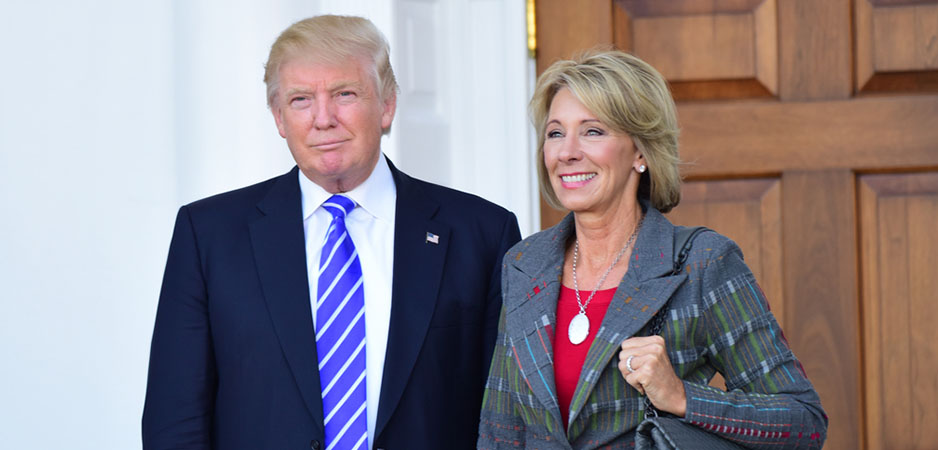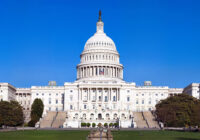Betsy DeVos comes under fire after CBS interview for comments on underperforming schools.
Not for the first time, US Secretary of Education Betsy DeVos has come under fire for her less than professional ability to even think about education, let alone talk about it. In her 60 Minutes interview on CBS, she used the word “intentionally” in a surprising way: “I have not intentionally visited schools that are underperforming.” Shortly after the interview, the White House curiously echoed her choice of vocabulary: “The secretary has been very intentional about visiting and highlighting high performing, innovative schools across the country.”
Here is today’s 3D definition:
Intentional:
1) Not unintentional
2) Accepting to act in a way that corresponds to other people’s expectations, but which the person in question has no inclination to initiate or execute
Contextual note
DeVos’ comment, if taken literally, means that she may, on some unremembered occasion, have visited underperforming schools, but never had the intention of doing so. It clearly has never been on her agenda. Spoken with a surer tone, sans the defensive smile and glowing eyes, this would have played out as high comedy. As it was, Trevor Noah saw it as low comedy.
For anyone with an ear for unintended irony, the White House statement that she “has been very intentional” increases the comic effect. It appears to establish that she has a limited ability to be intentional and so has wisely focused on “high performing, innovative schools.” Adding “across the country” buttresses the idea that there is a quota in the stock of “intentions” a secretary can dispose of, especially one who’s on the move all the time.
Historical note
The debate between Democrats and Republicans concerning education policy has never been about education itself: its role in the culture, its importance for the life of communities, its effect on democratic institutions, its impact on public debate. Instead it has focused on two narrow issues and feigned to believe that they are the key to “good education”: federal funding and consumer choice.
Democrats have favored federal funding as a means of promoting and maintaining national standards and what they believe is a minimum threshold of quality. Republicans have favored reduced spending and individual choice of schools, a consumerist model. For Republicans, families are very simply consumers of education within the capitalist system of supply and demand and individual decision-making. They should be free to choose their preferred supplier. For Democrats, education is the initiation of the entire population into the competitive world of job-seeking and requires an effort at establishing a level playing field.
 The consequences of their debates and hesitation are hilariously and tragically predictable. Democratic administrations invest in standardization, appeal to techno geeks like Bill Gates to turn teachers into managers of data and piously preach the heavenly kingdom of STEM (science, technology, engineering, mathematics) as the golden key to the job market and the future of competitive American industry. Republicans promote individual “freedom of choice,” a kind of opportunistic democracy that rewards those who make the right choices and condemns the others to their merited fate of losers. For Republicans, democracy is about “letting the best consumer win.” For Democrats, it’s about feeding the economic needs of both families and corporations.
The consequences of their debates and hesitation are hilariously and tragically predictable. Democratic administrations invest in standardization, appeal to techno geeks like Bill Gates to turn teachers into managers of data and piously preach the heavenly kingdom of STEM (science, technology, engineering, mathematics) as the golden key to the job market and the future of competitive American industry. Republicans promote individual “freedom of choice,” a kind of opportunistic democracy that rewards those who make the right choices and condemns the others to their merited fate of losers. For Republicans, democracy is about “letting the best consumer win.” For Democrats, it’s about feeding the economic needs of both families and corporations.
Neither seems overly concerned about the role of education with regard to how a society deals with truth, instills civic virtues, understands its history and culture or stimulates creativity, logic and critical thinking. For Republicans, all these activities sound destabilizingly un-American or should be reserved only for the elite. For Democrats, they fail to meet the utility criterion because, however desirable they may be, they can’t be assessed with standardized tests.
Democratic administrations do have more of a taste for social cohesion than Republicans, but they tend to translate it into a strictly bureaucratic and technocratic policy orientation. Republican administrations seem to be more open to experimentation rather than regimentation, but their experimentation is designed to isolate innovation and limit its eventual impact on the nation’s culture, protecting the status quo.
Teachers, whose increasingly thankless jobs are strewn with obstacles thanks to both approaches, object equally to the policies of Obama-Arne Duncan and those of Trump-DeVos. And frequently enough they very intentionally express their disapproval.
*[In the age of Oscar Wilde and Mark Twain, another American wit, the journalist Ambrose Bierce, produced a series of satirical definitions of commonly used terms, throwing light on their hidden meanings in real discourse. Bierce eventually collected and published them as a book, The Devil’s Dictionary, in 1911. We have shamelessly appropriated his title in the interest of continuing his wholesome pedagogical effort to enlighten generations of readers of the news.]
The views expressed in this article are the author’s own and do not necessarily reflect Fair Observer’s editorial policy.
Photo Credit: A. Katz / Shutterstock.com
Support Fair Observer
We rely on your support for our independence, diversity and quality.
For more than 10 years, Fair Observer has been free, fair and independent. No billionaire owns us, no advertisers control us. We are a reader-supported nonprofit. Unlike many other publications, we keep our content free for readers regardless of where they live or whether they can afford to pay. We have no paywalls and no ads.
In the post-truth era of fake news, echo chambers and filter bubbles, we publish a plurality of perspectives from around the world. Anyone can publish with us, but everyone goes through a rigorous editorial process. So, you get fact-checked, well-reasoned content instead of noise.
We publish 2,500+ voices from 90+ countries. We also conduct education and training programs
on subjects ranging from digital media and journalism to writing and critical thinking. This
doesn’t come cheap. Servers, editors, trainers and web developers cost
money.
Please consider supporting us on a regular basis as a recurring donor or a
sustaining member.
Will you support FO’s journalism?
We rely on your support for our independence, diversity and quality.






